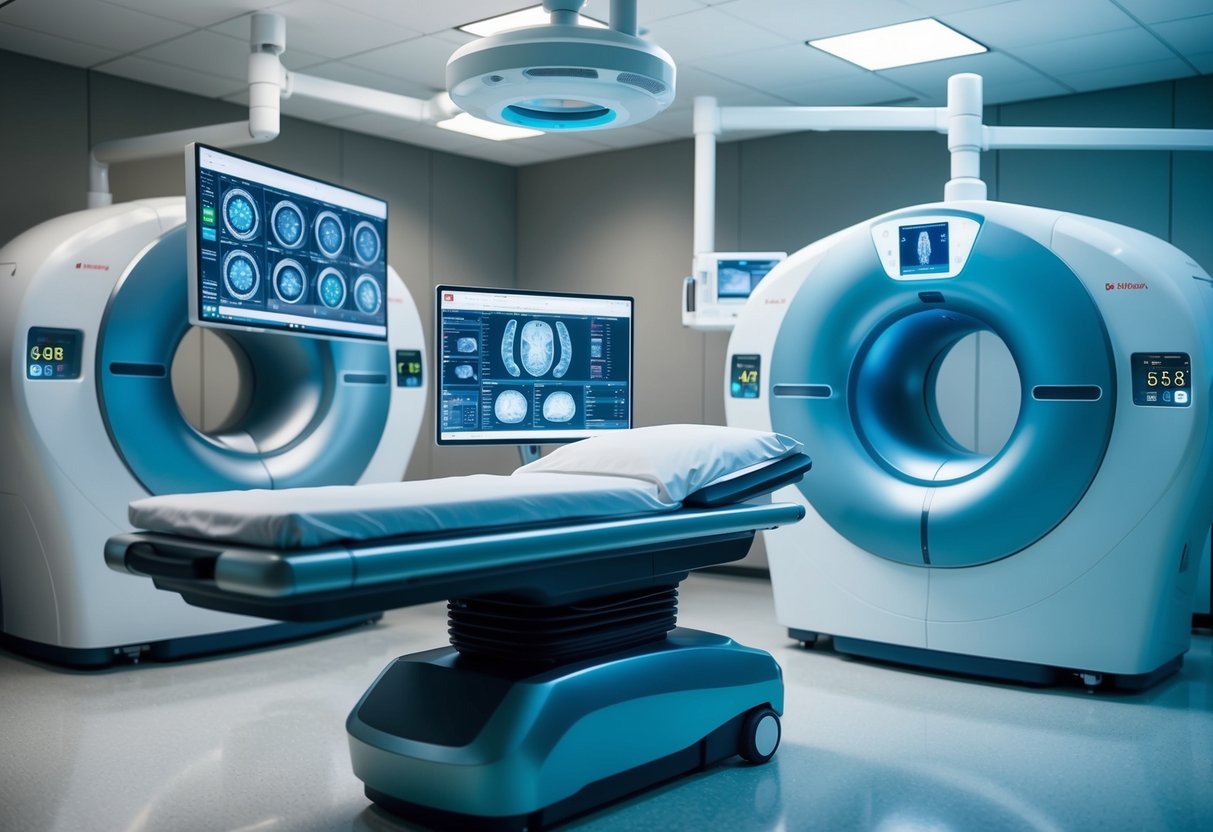
Artificial intelligence is making significant strides in healthcare, particularly in the field of medical imaging. It offers the potential to enhance diagnostic accuracy and speed, allowing physicians to identify conditions earlier than traditional methods. AI’s integration into medical imaging can transform the diagnosis process, ultimately improving patient outcomes.
In medical facilities worldwide, AI systems are being deployed to analyze images such as X-rays, MRIs, and CT scans. These systems can process and interpret vast amounts of data quickly, often detecting subtle patterns and anomalies that might be missed by the human eye. This not only supports clinicians in making more informed decisions but also helps in managing workloads by reducing time spent on routine examinations.
Moreover, AI-driven tools continue to evolve, learning from each case to refine their algorithms and improve over time. These advancements promise a future where comprehensive and precise diagnostics can be delivered more quickly and reliably than ever before. As technology continues to advance, AI stands at the forefront of revolutionizing patient care through enhanced diagnostic processes.
The Emergence of AI in Healthcare
Artificial intelligence is reshaping the landscape of medical diagnostics and healthcare delivery. By tracing its evolution and exploring the current applications, the significant impact AI has made becomes evident.
Historical Perspective and Evolution
AI’s integration into healthcare began decades ago, primarily through expert systems that aimed to replicate human decision-making. Initially, these systems faced limitations due to restricted computational power and data scarcity. Over time, advancements in machine learning and increased data availability have propelled AI from theoretical models to practical tools in clinical settings.
In past years, AI’s evolution was marked by the introduction of neural networks and deep learning, significant breakthroughs that enhanced image recognition capabilities. These technologies have since been pivotal in developing sophisticated diagnostic tools that can analyze intricate medical images with remarkable precision. This ongoing transformation underscores AI’s potential to further improve diagnostic accuracy and efficiency.
The Healthcare AI Landscape Today
Today, AI is deeply embedded in various aspects of healthcare. It plays a crucial role in medical imaging, enabling precise disease detection and predictive analytics. AI algorithms can interpret complex imaging data, aiding in early diagnosis and personalized treatment plans. This enhances healthcare delivery by streamlining workflows and reducing human error.
Regulatory bodies are gradually establishing frameworks to ensure AI’s safe and effective implementation in healthcare. Despite challenges such as ethical considerations and data privacy, ongoing innovations continue to expand AI’s applications. From aiding radiologists in interpretation to predicting patient outcomes, AI holds promise for revolutionizing diagnostic and treatment processes across medical fields.
AI-Driven Medical Imaging
As artificial intelligence transforms healthcare, it plays an increasingly pivotal role in enhancing medical imaging. This enables refined diagnostics and more efficient radiology workflows, redefining how diseases are detected and managed.
Current State of AI in Radiology
AI technologies, especially deep learning and convolutional neural networks, are revolutionizing radiology. Radiologists now use these tools to analyze complex imaging data from CT scans, MRIs, and PET scans, leading to improved diagnostic accuracy. AI algorithms assist by highlighting areas of interest in scans that may require further investigation, thus aiding in early detection and treatment planning.
Recent advancements have enabled AI to perform tasks such as recognizing patterns indicative of diseases, reducing the chance of human error. Hospitals and clinics are increasingly adopting AI-driven solutions to streamline operations and cut costs. As AI continues to integrate into radiology, it is enhancing the capabilities of healthcare professionals and setting new standards for patient care.
Advances in Imaging Technologies
Cutting-edge imaging technologies are evolving alongside AI, creating synergistic effects that enhance medical diagnostics. Innovations like advanced CT and MRI machines, which now incorporate AI algorithms, offer clearer, more detailed images than ever before. These enhancements make it easier for radiologists to interpret complex data, providing them with valuable insights that were previously inaccessible.
AI has also improved the processing speed of imaging technologies, leading to faster diagnosis times. Machine learning models are employed to optimize image reconstruction processes, rendering detailed images from raw data rapidly. These improvements not only accelerate diagnosis but also improve patient outcomes by facilitating timely interventions. As technology progresses, the potential applications and benefits of AI in medical imaging continue to expand.